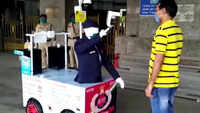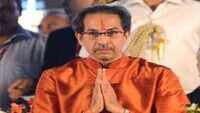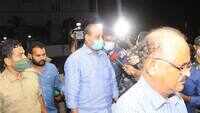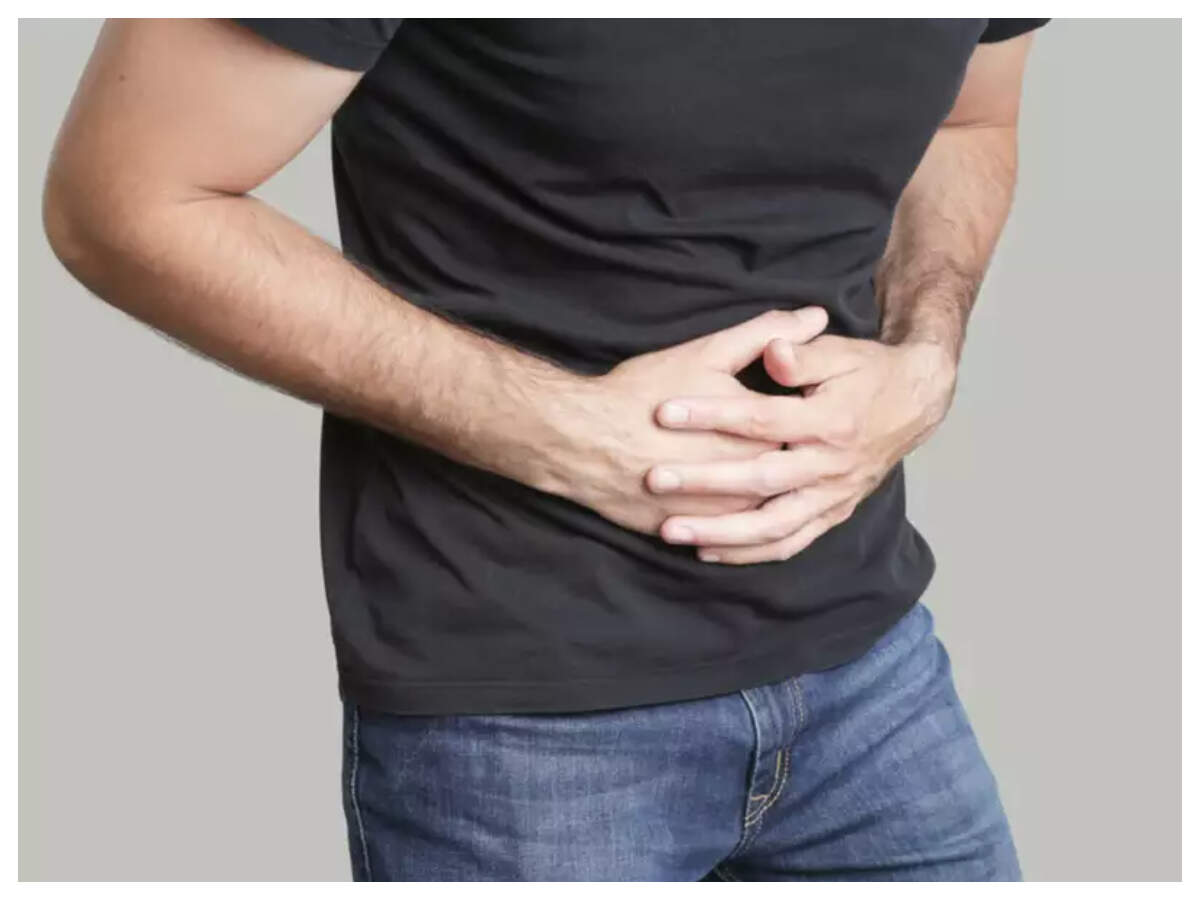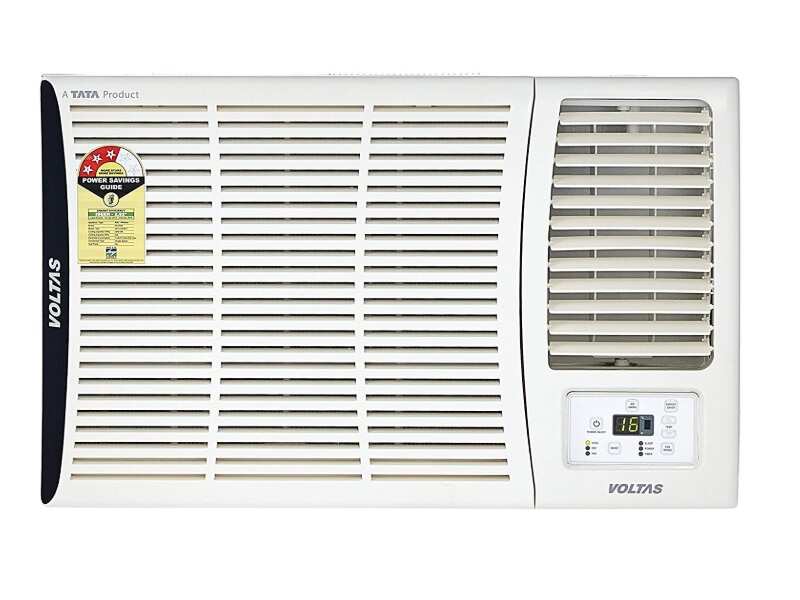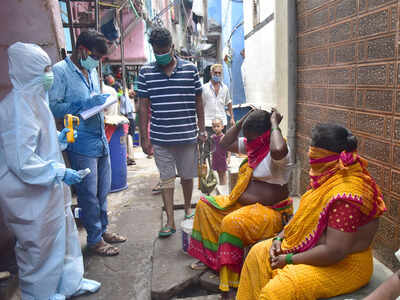
MUMBAI: In 12 days of June alone, Maharashtra, whose Covid caseload crossed 1 lakh on Friday, has added 30,000 cases to its tally. With 127 deaths added on Friday, the state's overall toll stood at 3,717, placing its death count, too, above that of several countries.
While Maharashtra accounts for more than a third of the country's coronavirus case burden, the Mumbai Metropolitan Region itself accounts for 75% of the disease burden in the state. Mumbai, which remains India's worst-hit city with 55,451 cases (it added 1,366 cases on Friday), is responsible for 55% of the state's incidence. Thane and Pune, with a caseload of 16,443 and 11,281 respectively, are also major contributors to the state tally.
On Friday, Mumbai reached another grim milestone by crossing 2,000 deaths. For the third day in a row, the city added at least 90 deaths to its tally; while the toll was exactly 90 on Friday, it was 97 on each of the preceding two days. The city's toll now stands at 2,044, accounting for 55% of deaths in Maharashtra.
When Maharashtra government imposed a lockdown on March 23, a day before the nationwide lockdown was imposed by the Centre, the state had 97 cases.
State health minister Rajesh Tope claimed that the lockdown has helped the state to contain the virus spread and given it time to set up additional healthcare facilities. "If we see cases from countries like the USA and other European countries, we are not that bad. Also, we have only 49,000-odd active cases in the state. The recovery rate in many districts is as high as 70%," Tope told TOI.
State officials insisted the state has used the lockdown to control spread of the virus and to add capacity. Dr Anupkumar Yadav, commissioner of National Health Mission, said the state has created nearly 3 lakh isolation beds during the lockdown.
Outside of big-city limits, hotspots like Solapur, Jalgaon, Akola, Dhule and Amravati are emerging as pockets of concern due to their high death ratio. In places like Jalgaon, officials and deans have been suspended for dereliction of duty while the state task force has been asked to focus on these districts.
Tope added that shortage of ICU and ventilators in Mumbai and nearby regions was a cause for concern and that there was still a 'hand-to-mouth' situation. "There is no shortage of beds of any kind in the rest of the state except Mumbai and its neighbouring region. That too is being sorted out," Tope said.
Within Mumbai, there have been some silver linings. Even though Dharavi has crossed 2,000 cases, there has been a steady decline there in cases and deaths.
While Maharashtra accounts for more than a third of the country's coronavirus case burden, the Mumbai Metropolitan Region itself accounts for 75% of the disease burden in the state. Mumbai, which remains India's worst-hit city with 55,451 cases (it added 1,366 cases on Friday), is responsible for 55% of the state's incidence. Thane and Pune, with a caseload of 16,443 and 11,281 respectively, are also major contributors to the state tally.
On Friday, Mumbai reached another grim milestone by crossing 2,000 deaths. For the third day in a row, the city added at least 90 deaths to its tally; while the toll was exactly 90 on Friday, it was 97 on each of the preceding two days. The city's toll now stands at 2,044, accounting for 55% of deaths in Maharashtra.
When Maharashtra government imposed a lockdown on March 23, a day before the nationwide lockdown was imposed by the Centre, the state had 97 cases.
State health minister Rajesh Tope claimed that the lockdown has helped the state to contain the virus spread and given it time to set up additional healthcare facilities. "If we see cases from countries like the USA and other European countries, we are not that bad. Also, we have only 49,000-odd active cases in the state. The recovery rate in many districts is as high as 70%," Tope told TOI.
State officials insisted the state has used the lockdown to control spread of the virus and to add capacity. Dr Anupkumar Yadav, commissioner of National Health Mission, said the state has created nearly 3 lakh isolation beds during the lockdown.
Outside of big-city limits, hotspots like Solapur, Jalgaon, Akola, Dhule and Amravati are emerging as pockets of concern due to their high death ratio. In places like Jalgaon, officials and deans have been suspended for dereliction of duty while the state task force has been asked to focus on these districts.
Tope added that shortage of ICU and ventilators in Mumbai and nearby regions was a cause for concern and that there was still a 'hand-to-mouth' situation. "There is no shortage of beds of any kind in the rest of the state except Mumbai and its neighbouring region. That too is being sorted out," Tope said.
Within Mumbai, there have been some silver linings. Even though Dharavi has crossed 2,000 cases, there has been a steady decline there in cases and deaths.

Coronavirus outbreak
Trending Topics
LATEST VIDEOS
More from TOI
Navbharat Times
Featured Today in Travel
Get the app
